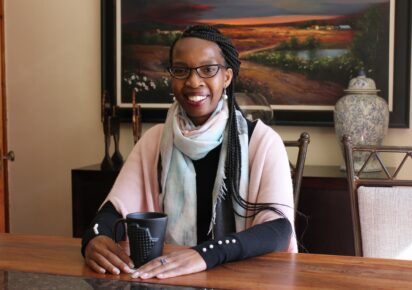
Bertha Dlamini is the Founding President of African Women in Energy and Power (AWEaP), a non-profit company working to accelerate African women entrepreneurs’ participation in the energy sector. After studying Marketing, she started her career in consulting and in 2006 founded her own marketing company Rito Consulting Services.
Driven by a need to grow and diversify her business interest, she accepted an opportunity to partner with EON Consulting, an engineering consulting firm. When Bertha first started working at EON Consulting, only very few women leaders were employed in the energy sector. In fact, during her first three years, Bertha was often the only female, the only black person, and often the youngest in many industry forums. While she was the first black female partner at the engineering consulting firm. But she did not experience this as a negative: “I was a novelty, and a welcome one.” Bertha says she brought gentleness, a different way of interacting with employees. That being said, she also describes herself as a confident and goal-oriented person who wasn’t bothered by other people’s opinion of her. What mattered to her was that she got respect from her team and the board based on the positive and tangible contribution she brought to the company and the industry.
Bertha describes that the hook for her interest in energy stems from the opportunities and dignity that it allows people and communities: “Access to electricity enables access to information, to quality education, to health care, and an overall better quality of life.” With a current electrification rate of 85% [1], many people in the country are still excluded from these benefits, and the rate is much lower in the rest of Sub-Saharan Africa.
Making a business case for women
Bertha soon realised that there was no body of knowledge on women working in the energy sector globally, especially women in the nexus of entrepreneurship, energy and infrastructure development. In South Africa, 35% of South African women are unemployed [2], and the situation is even worse for black women (41%) [3]. AWEaP is working to make a difference to that number by introducing women to the value chains that drive electricity production and helping them identify entrepreneurial entry points. AWEaP delivers energy sector orientation webinars and other targeted interventions that aim to integrate women owned and led companies to local and global supply chains in the energy and power sector. This includes access to finance, networks and credible market information.
This article is the summary of an interview, conducted in the course of our research on opportunities and barriers for women in the power sector in South Africa.
